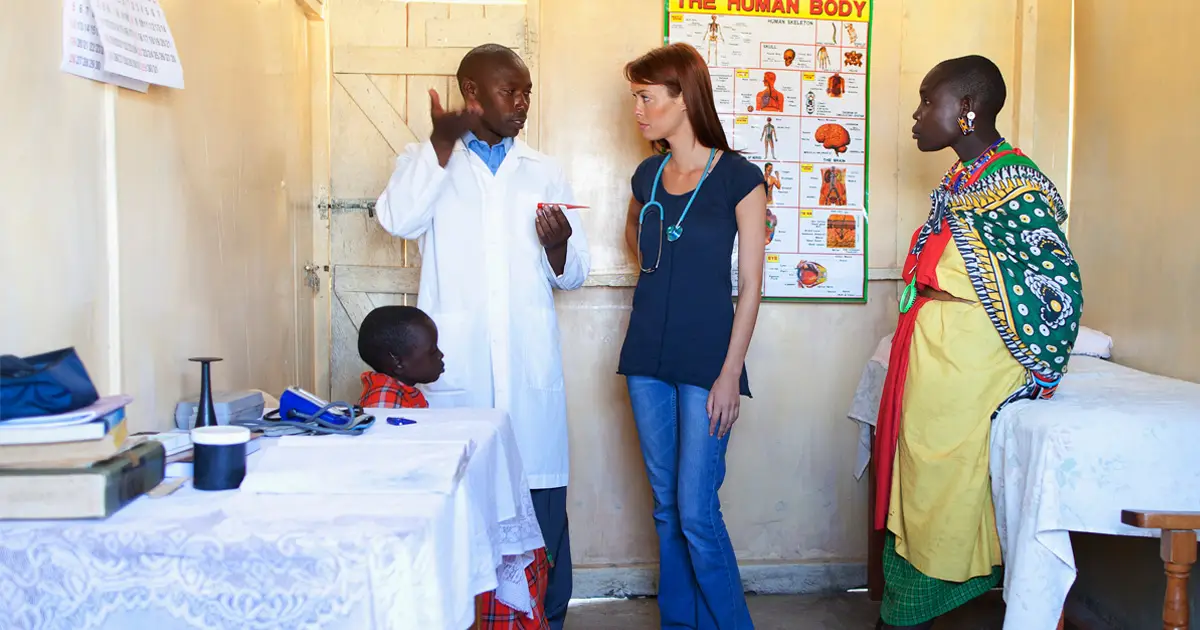Advising on Global Health Careers

Setting the Stage
It does not take long after the start of the school year before students seek advice from instructors about making a career in global health. I summarize below, therefore, a number of the most important lessons that I have learned about advising in ways that are fun, productive for faculty and students, and time-efficient.
It became clear to me early in my teaching that it was essential for my students and me to prepare for advising sessions if they were to be fruitful and not take “forever.” Since then, I have taken a consistent approach to advise on careers, as noted below.
First, I ask the student to send me their resume. This is a good opportunity to learn about the student and help them enhance the quality of their resume.
Next, I ask students to send me a paragraph addressing what they think they want to be doing in 15 years, from what platform, and what professional impact they hope to have. I remind students that it is perfectly “OK” if they are not yet sure of this and that, in this case, they can lay out what they are thinking.
Very few students will have a good understanding of the “architecture of global health.” Except for the best-known organizations, students will generally know little about the main actors in global health, key players, or opportunities for internships or jobs. After going over this repeatedly in advising sessions in my early teaching days, therefore, I decided to add a chapter to Global Health 101 called “Working in Global Health.” I ask students to read this chapter before we meet to focus on questions about the global health landscape rather than spend lots of time on the basics. Instructors should note that this chapter is only available online for the fourth edition of Global Health 101.
It is impossible to overstate the importance of role models for people’s professional development in any field, and the same holds for global health. Yet, most of our students will have heard of only a few global health actors. For this reason, I added a chapter on “Profiles of Global Health Actors” to Global Health 101. Having the students read this before we meet helps them get a better sense of the wide array of possible careers in global health and how many people gained the knowledge, skills, experience, and commitment to serve in them. This chapter is also online only for the fourth edition of Global Health 101.
Finally, I ask the students to send me “the three questions on which they most want my advice” before we meet. This, too, has been immensely helpful in keeping our sessions focused and productive.
I have found over many years that the student’s preparing the above information and my looking at it before our meetings helps to focus discussions. It thereby helps to enhance substantially the quality and impact of advising sessions.Setting Goals
It is important to have clear goals for each advising session. Of course, they will vary, depending on with whom one is speaking. The goals of an advising session with first-year students who want to “explore” global health careers will be quite different from the goals of a session with a fourth-year student who is planning life after university. In any case, I try to begin each advising session with an agreement with the student about what we hope will emerge from our discussion. This could be, for example, some recommended readings, homework on possible jobs in the field, my help in contacting employers who I know and to whom I might recommend them, and more.Setting Expectations
In all cases, I try to ensure that students leave their advising sessions with a better sense of the knowledge, skills, experience, and behaviors they need to pursue their career interests and the next steps for acquiring them. It is especially important to help students understand that many “smart and talented” people want to work in global health. At the end of the day, however, those who are most successful and impactful are people who understand the extent to which attitudes and behaviors matter, including, for example, humility, empathy, a commitment to social justice, a good understanding of other people and cultures, and a good sense of what one knows and what one does not know.
COVID and a world that has changed in many ways have complicated the possibilities for working in global health and how one might do so. Many students will ask: “will there be jobs in global health in the future.” Dr. Srinath Reddy, the Director of the Public Health Foundation of India, gave the best answer to this question that I have heard. I can paraphrase it by saying: “There will be jobs in global health for many years to come. However, they will increasingly be based on cooperation and sharing of knowledge and information across an array of global actors.”
About the Author
Richard Skolnik, MPA, has spent more than 40 years working on international development and global health and was formerly a lecturer in the Yale School of Public Health, the Yale School of Management, and the George Washington University School of Public Health.
Richard Skolnik is also the author of Global Health 101, Fourth Edition and Global Population Health: A Primer.